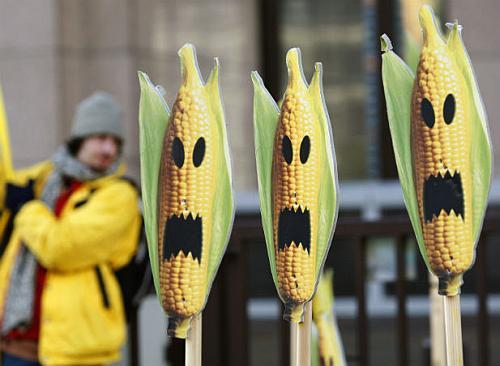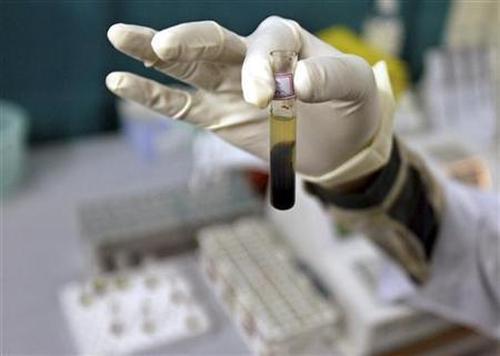Photographs: Thierry Roge/Reuters
An independent scientific analysis released by Greenpeace India has revealed major flaws in the Genetically Modified (GM) corn's biosafety assessment process.
Greenpeace India asked an independent research agency Testbiotech to assess data presented by the US biotech giant, Monsanto, to the Indian authorities 'for biosafety tests prior to commercial approval'.
The stacked gene GM corn (MON89034xNK603) with bacterial genes for pest resistance and herbicide tolerance has been released into fields several times in the past 4 years in the name of field trials.
...
Monsanto's GM corn biosafety data raises concerns
Photographs: Rupak De Chowdhuri/Reuters
Greenpeace accessed the biosafety and field trials data through RTI from the Department of Biotechnology (DBT) and Genetic Engineering Appraisal Committee (GEAC), which is the nodal agency for all environmental releases of GMOs in India.
According to the response received from DBT, these trials were permitted based on biosafety data generated by Monsanto itself in its labs in USA.
The Testbiotech analysis highlights that the assessments presented are incomplete and lacks in scientific rigor. Also, most of the data provided was for the parent lines with the single genes with almost no studies on the stacked gene corn for which was the application.
...
Monsanto's GM corn biosafety data raises concerns
Photographs: Reuters
Based on the data presented by Monsanto, the review report concluded that no decisions can be taken on the safety of the plants.
Apart from missing data and inadequate investigations, there are in fact substantial indications for health and environmental risks.
This stacked gene variety of Monsanto's corn had been in controversy earlier in 2011 when Greenpeace had revealed grave violations of field trial rules by the company in its trials at Bijapur district in Karnataka.




article